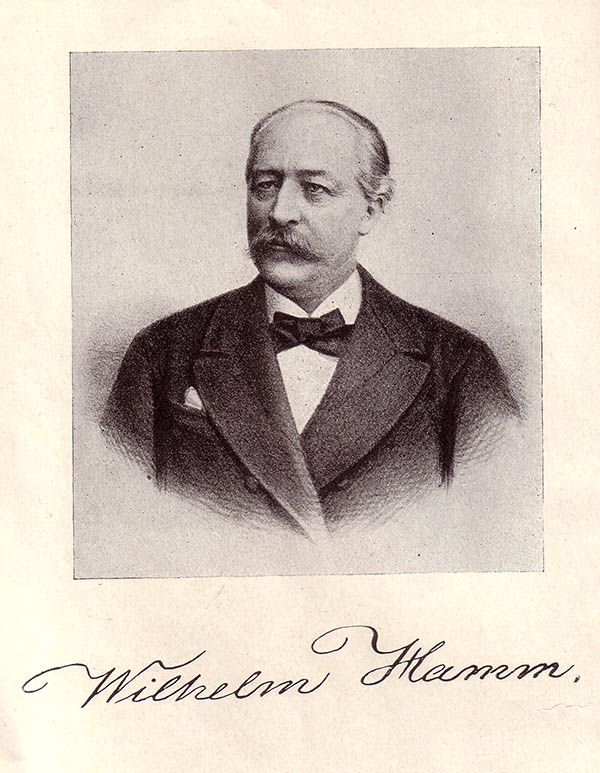Wilhelm Philipp Ritter von Hamm (July 5, 1820 – November 8, 1880), a.k.a. Philipp Emrich, was a German-Austrian chemist, agronomist, politician, and wine enthusiast. Hamm was born in Darmstadt, the son of a Grand Ducal Chamberlain of Hesse-Darmstadt. He studied chemistry at Justus-Liebig-Universität Giessen where he joined the influential student organization, Corps Teutonia Giessen. After graduating he worked on several Hessian estates until about 1838, when he moved to the Hohenheim Agricultural and Forestry Academy near Stuttgart. At this time he developed an interest in the emerging engineering discipline of agricultural machinery, on which he wrote the famous 1845 work, The Agricultural Machinery and Equipment of England . In 1847, he relocated to Leipzig and assumed the role of editor for the Agronomische Zeitung. The following year, in 1848, he participated in the Schleswig-Holstein Campaign, serving as an officer in the Tann Freikorps. In 1851, he founded an agricultural machinery factory in Eutritzsch, near Leipzig. From 1862, he was a member of the Leipzig city council and was a deputy member of the Second Chamber of the Assembly of the Estates of the Kingdom of Saxony. In 1867, he moved to Vienna to take a position with the Ministry of Commerce. In that capacity, he was sent with the Austrian delegation to the opening of the Suez Canal. He also published biographical and poetical works. In culinary circles, he is well known for his 1865 treatise on wine, Das Weinbuch [The Wine Book} and a related Weincarte of Europe.



